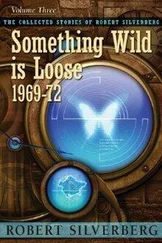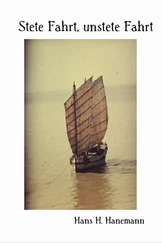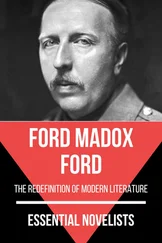'Yes, a war is inevitable. Firstly, there's you fellows who can't be trusted. And then there's the multitude who mean to have bathrooms and white enamel. Millions of them; all over the world. Not merely here. And there aren't enough bathrooms and white enamel in the world to go round. It's like you polygamists with women. There aren't enough women in the world to go round to satisfy your insatiable appetites. And there aren't enough men in the world to give each woman one. And most women want several. So you have divorce cases. I suppose you won't say that because you're so circumspect and right there shall be no more divorce? Well, war is as inevitable as divorce...'
Macmaster had his head out of the carriage window and was calling for a porter.
On the platform a number of women in lovely sable cloaks, with purple or red jewel cases, with diaphanous silky scarves flying from motor hoods, were drifting towards the branch train for Rye, under 'the shepherding of erect, burdened footmen. Two of them nodded to Tietjens.
Macmaster considered that he was perfectly right to be tidy in his dress; you never knew whom you mightn't meet on a railway journey. This confirmed him as against Tietjens, who preferred to look like a navvy.
A tall, white-haired, white-moustached, red-cheeked fellow limped after Tietjens, who was getting his immense bag out of the guard's van. He clapped the young man on the shoulder and said:
'Hullo! How's your mother-in-law? Lady Claude wants to know. She says come up and pick a bone tonight if you're going to Rye.' He had extraordinarily blue, innocent eyes.
Tietjens said:
'Hullo, General,' and added: 'I believe she's much better. Quite restored. This is Macmaster. I think I shall be going over to bring my wife back in a day or two. They're both at Lobscheid...a German spa.'
The General said:
'Quite right. It isn't good for a young man to be alone. Kiss Sylvia's finger-tips for me. She's the real thing, you lucky beggar.' He added, a little anxiously: 'What about a foursome to-morrow? Paul Sandbach is down. He's as crooked as me. We can't do a full round at singles.'
'It's your own fault,' Tietjens said. 'You ought to have gone to my bone-setter. Settle it with Macmaster, will you?' He jumped into the twilight of the guard's van.
The General looked at Macmaster, a quick penetrating scrutiny:
'You're the Macmaster,' he said. 'You would be if you're with Chrissie.'
A high voice called:
'General! General!'
'I want a word with you,' the General said, 'about the figures in that article you wrote about Pondoland. Figures are all right. But we shall lose the beastly country if...But we'll talk about it after dinner to-night. You'll come up to Lady Claudine's...?
Macmaster congratulated himself again on his appearance. It was all very well for Tietjens to look like a sweep; he was of these people. He, Macmaster, wasn't. He had, if anything, to be an authority, and authorities wear gold tie-rings and broadcloth. General Lord Edward Campion had a son, a permanent head of the Treasury department that regulated increases of salaries and promotions in all the public offices. Tietjens only caught the Rye train by running alongside it, pitching his enormous kit-bag through the carriage window and swinging on the footboard. Macmaster reflected that if he had done that half the' station would have been yelling, 'Stand away there.'
As it was Tietjens a stationmaster was galloping after him to open the carriage door and grinningly to part:
'Well caught, sir!' for it was a cricketing county.
'Truly,' Macmaster quoted to himself.
'"The gods to each ascribe a differing lot:
Some enter at the portal. Some do not!"'
Mrs Satterthwaite with her French maid, her priest, and her disreputable young man, Mr Bayliss, were at Lobscheid, an unknown and little-frequented air resort amongst the pinewoods of the Taunus. Mrs Satterthwaite was ultrafashionable and consummately indifferent--she only really lost her temper if at her table and under her nose you consumed her famous Black Hamburg grapes without taking their skin and all. Father Consett was out to have an uproarious good time during his three weeks' holiday from the slums of Liverpool; Mr Bayliss, thin like a skeleton in tight blue serge, golden haired and pink, was so nearly dead of tuberculosis, was so dead penniless, and of tastes so costly that he was ready to keep stone quiet, drink six pints of milk a day and behave himself. On the face of it, he was there to write the letters of Mrs Satterthwaite, but the lady never let him enter her private rooms for fear of infection. He had to content himself with nursing a growing adoration for Father Consett. This priest, with an enormous mouth, high cheek bones, untidy black hair, a broad face that never looked too clean and waving hands that always looked too dirty, never kept still for a moment, and had a brogue such as is seldom heard outside old-fashioned English novels of Irish life. He had a perpetual laugh, like the noise made by a steam round-about. He was, in short, a saint, and Mr Bayliss knew it, though he didn't know how. Ultimately, and with the financial assistance of Mrs Satterthwaite, Mr Bayliss became almoner to Father Consett, adopted the rule of St. Vincent de Paul and wrote some very admirable, if decorative, devotional verse.
They proved thus a very happy, innocent party. For Mrs Satterthwaite interested herself--it was the only interest she had--in handsome, thin and horribly disreputable young men. She would wait for them, or send her car to wait for them, at the gaol gates. She would bring their usually admirable wardrobes up to date and give them enough money to have a good time. When contrary to all expectations--but it happened more often than not!--they turned out well, she was lazily pleased. Sometimes she sent them away to a gay spot with a priest who needed a holiday; sometimes she had them down to her place in the west of England.
So they were a pleasant company and all very happy. Lobscheid contained one empty hotel with large verandahs and several square farmhouses, white with grey beams, painted in the gables with bouquets of blue and yellow flowers or with scarlet huntsmen shooting at purple stags. They were like gay cardboard boxes set down in fields of long grass; then the pinewoods commenced and ran, solemn, brown and geometric for miles up and down hill. The peasant girls wore black velvet waistcoats, white bodices, innumerable petticoats and absurd parti-coloured headdresses of the shape and size of halfpenny buns. They walked about in rows of four to six abreast; with a slow step, protruding white-stockinged feet in dancing pumps, their headdresses nodding solemnly; young men in blue blouses, knee-breeches and, on Sundays, in three-cornered hats, followed behind singing part-songs.
The French maid--whom Mrs Satterthwaite had borrowed from the Duchesse de Carbon Château-Herault in exchange for her own maid--was at first inclined to find the place maussade . But getting up a tremendous love affair with a fine, tall, blond young fellow, who included a gun, a gold-mounted hunting knife as long as his arm, a light, grey-green uniform, with gilt badges and buttons, she was reconciled to her lot. When the young Förster tried to shoot her--' et pour cause ,' as she said--she was ravished and Mrs Satterthwaite lazily amused.
They were sitting playing bridge in the large, shadowy dining-hall of the hotel: Mrs Satterthwaite, Father Consett, Mr Bayliss. A young blond sub-lieutenant of great obsequiousness who was there as a last chance for his right lung and his career, and the bearded Kur-doctor cut in. Father Consett, breathing heavily and looking frequently at his watch, played very fast, exclaiming: 'Hurry up now; it's nearly twelve. Hurry up wid ye.' Mr Bayliss being dummy, the Father exclaimed: 'Three no trumps; I've to make. Get me a whisky and soda quick, and don't drown it as ye did the last.' He played his hand with extreme rapidity, threw down his last three cards, exclaimed: 'Ach! Botheranouns an' all; I'm two down and I've revoked on the top av it,' swallowed down his whisky and soda, looked at his watch and exclaimed: 'Done it to the minute! Here, doctor, take my hand and finish the rubber.' He was to take the mass next day for the local priest, and mass must be said fasting from midnight, and without cards played. Bridge was his only passion; a fortnight every year was what, in his worn-out life, he got of it. On his holiday he rose at ten. At eleven it was: 'A four for the Father.' From two to four they walked in the forest. At five it was: 'A four for the Father.' At nine it was: 'Father, aren't you coming to your bridge?' And Father Consett grinned all over his face and said: 'It's good ye are to a poor ould soggart. It will be paid back to you in Heaven.'
Читать дальше












